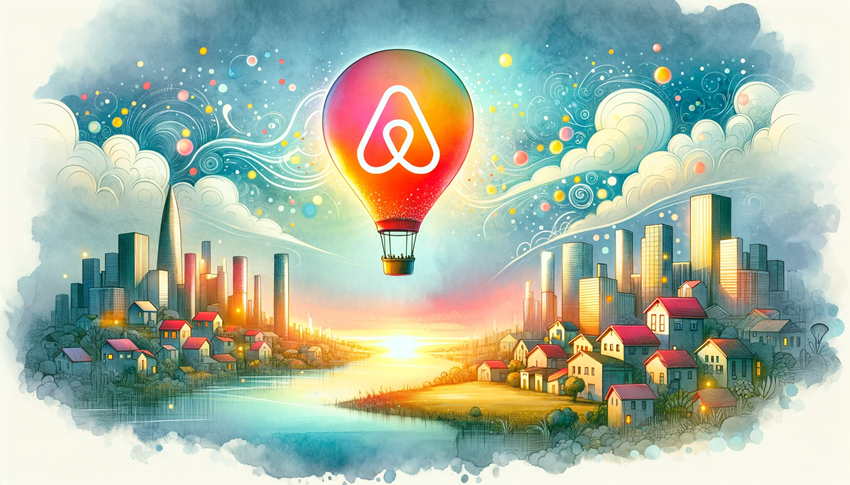Services List
Airbnb Inc.'s recent strategic shift in marketing, emphasising brand marketing over search-engine marketing, offers a valuable case study in the evolving landscape of brand management and its impact on business performance. This article delves into the importance of brand marketing, using Airbnb's experience as an example.

Covered In This Article
Redefining Marketing Strategy
Results of the Shift
The Economic Context
Direct-to-Consumer Model Evolution
Future Challenges and Competitiveness
Key Takeaways for Marketers
Redefining Marketing Strategy
In recent years, Airbnb has redefined its marketing approach. In 2019, the company began to pivot away from search advertising, focusing instead on broader marketing campaigns and public relations efforts to strengthen its brand. This transition towards brand marketing has involved significant reductions in overall marketing expenditures, with a notable decrease in performance marketing expenses, which are campaigns directly aimed at generating consumer action.
Results of the Shift
The shift in strategy has yielded notable results for Airbnb. The company's most profitable quarter to date, as reported on a recent earnings call, is a testament to the strength of this new approach. Airbnb's Chief Financial Officer, Dave Stephenson, highlighted the successful return on investment from the company's brand marketing initiatives, stating that these efforts are delivering excellent results with a strong rate of return. This success has prompted Airbnb to expand its brand marketing to more countries.
The Economic Context
Amid economic uncertainties and potential headwinds, Airbnb's revised marketing strategy has positioned the company in a place where drastic reductions in marketing spending are not anticipated. This resilience is partly due to already having achieved a lower overall rate of marketing expenditures. The company's approach, according to CEO Brian Chesky, is not to "buy" customers but to use marketing strategically to balance supply and demand, focusing on publicising unique features like Airbnb Categories (a way to search for accommodation based on factors like design or proximity to a particular amenity) and AirCover policies (which offers liability insurance and damage protection to hosts).
Direct-to-Consumer Model Evolution
Airbnb's strategy serves as a model for direct-to-consumer brands aiming to integrate brand marketing into their growth plans. According to Mat Zucker, Senior Partner at Prophet, Airbnb's success in integrating brand and performance marketing can be attributed to its lean operation and absence of legacy structures that often burden older, more established companies.
Future Challenges and Competitiveness
While Airbnb's brand marketing approach has proven effective, challenges loom on the horizon, particularly in the face of increased marketing spending by competitors in the travel and hospitality industry. The question remains whether Airbnb can maintain its share of voice and continue to thrive if competitors intensify their marketing efforts in a potential economic downturn.
Key Takeaways for Marketers
The evolving landscape of digital marketing demands adaptability and innovative approaches. Airbnb’s strategic shift from search-engine marketing to brand marketing underscores this need for adaptability, offering a wealth of insights for marketers. Here are some key takeaways from Airbnb's journey that can guide marketing professionals in refining their strategies:
- Focus on Brand Building: Transitioning from performance marketing to brand marketing can yield long-term benefits, including customer loyalty and brand recognition.
- Adaptability in Economic Uncertainty: In times of economic flux, having a flexible marketing strategy that doesn't heavily rely on large budgets can be a significant advantage.
- Integration of Marketing Channels: Airbnb’s approach shows the importance of integrating various marketing channels (like PR, digital, and traditional advertising) for a more holistic strategy.
- Strategic Use of Performance Marketing: Performance marketing shouldn’t be about just acquiring customers; it should strategically balance supply and demand and highlight unique aspects of the brand.
- Lean Operations and Innovation: Embrace a lean operational model to stay agile and innovative, avoiding the pitfalls of legacy systems and structures.
- Maintaining Competitive Edge: Constantly evaluate the market to maintain a competitive edge, especially when facing increased spending from competitors.
Airbnb’s marketing evolution offers a blueprint for marketers looking to navigate the complex world of digital marketing effectively. By focusing on building a robust brand identity, integrating various marketing channels, and maintaining flexibility in the face of economic uncertainties, marketers can not only sustain but also grow their brand's presence in the market. As the marketing landscape continues to evolve, these lessons from Airbnb serve as a guide for adapting and thriving in a competitive environment.
Ready to elevate your brand? Contact Velocity for bespoke marketing strategies tailored to your needs. Our experts will guide you to success. Let's grow your brand together!






